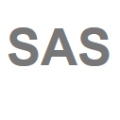Expensive optimization problems (EOPs) present significant challenges for traditional evolutionary optimization due to their limited evaluation calls. Although surrogate-assisted search (SAS) has become a popular paradigm for addressing EOPs, it still suffers from the cold-start issue. In response to this challenge, knowledge transfer has been gaining popularity for its ability to leverage search experience from potentially related instances, ultimately facilitating head-start optimization for more efficient decision-making. However, the curse of negative transfer persists when applying knowledge transfer to EOPs, primarily due to the inherent limitations of existing methods in assessing knowledge transferability. On the one hand, a priori transferability assessment criteria are intrinsically inaccurate due to their imprecise understandings. On the other hand, a posteriori methods often necessitate sufficient observations to make correct inferences, rendering them inefficient when applied to EOPs. Considering the above, this paper introduces a Bayesian competitive knowledge transfer (BCKT) method developed to improve multi-task SAS (MSAS) when addressing multiple EOPs simultaneously. Specifically, the transferability of knowledge is estimated from a Bayesian perspective that accommodates both prior beliefs and empirical evidence, enabling accurate competition between inner-task and inter-task solutions, ultimately leading to the adaptive use of promising solutions while effectively suppressing inferior ones. The effectiveness of our method in boosting various SAS algorithms for both multi-task and many-task problems is empirically validated, complemented by comparative studies that demonstrate its superiority over peer algorithms and its applicability to real-world scenarios. The source code of our method is available at https://github.com/XmingHsueh/MSAS-BCKT.
翻译:暂无翻译




